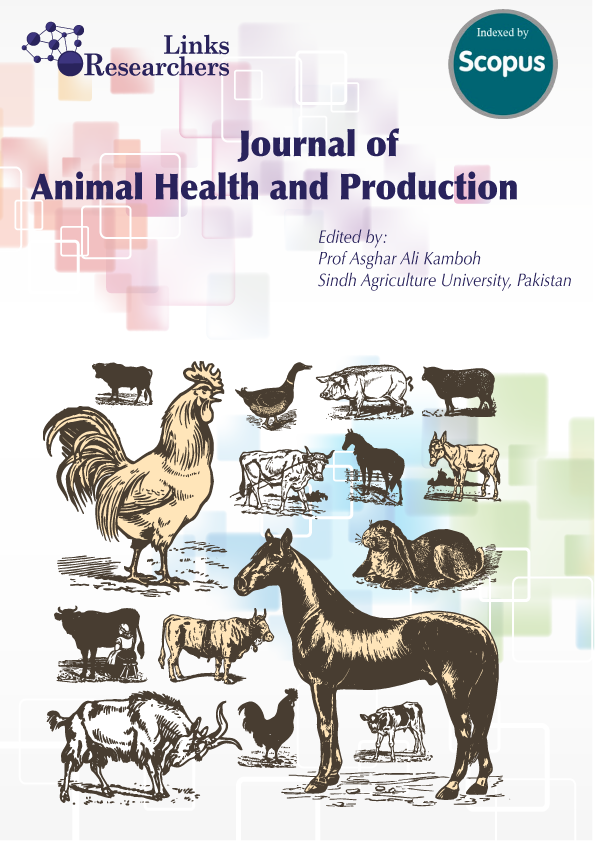Effect of Dietary Supplementation of Humic Acid on Blood Parameters, Antioxidant Activity, Serum and Bone Minerals in Laying Hens
Effect of Dietary Supplementation of Humic Acid on Blood Parameters, Antioxidant Activity, Serum and Bone Minerals in Laying Hens
Muhammad Mudasir Mushtaq1, Safdar Hassan1, Muhammad Sharif1*, Arfan Asghar2, Fawwad Ahmad1, Muhammad Khalid Bashir3, Muhammad Ashraf1, Mukarram Bashir1, Tahreem Fatima4, Muzammal Mushtaq5
ABSTRACT
The study assessed the influence of different levels of humic acid supplementation on blood parameters, antioxidant activity, serum minerals, and bone mineralization in layers. A total of 160 white commercial laying hens, aged 37 weeks, were distributed into four treatment groups with 5 replicates and 8 hens per replicate. The experimental duration was 8 weeks. The basal diet was supplemented with 0, 0.125, 0.250, and 0.375% humic acid. Blood samples were collected from the wing vein at the beginning and end of the trial. Blood parameters (CBC, LDL, HDL, AST, ALT, and cholesterol), antioxidant activity (TAC, SOD, and GPx), and serum minerals (calcium, phosphorus, magnesium, sodium, potassium, and chloride) were analyzed. Tibial ash was measured as an indicator of bone mineral content. Results showed that supplementation with 0.375% humic acid significantly increased antioxidant activity parameters (TAC, GPx, and SOD) and tibial ash minerals (calcium and phosphorus). Blood parameters (white blood cells, red blood cells, hemoglobin, cholesterol, and HDL) and serum minerals (calcium and phosphorus) were positively affected by 0.375% humic acid. However, other blood parameters and serum minerals were not significantly affected. In conclusion, 0.375% humic acid supplementation seems to positively influence the laying hen performance.
To share on other social networks, click on any share button. What are these?





